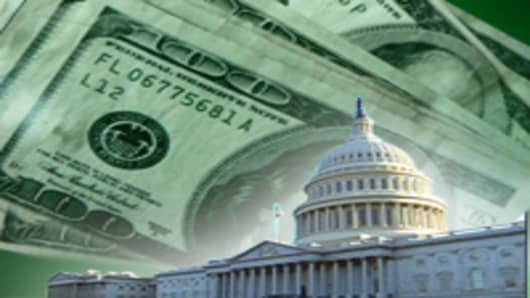“The restrictions on how the money will be spent seem to have been completely ineffective,” Ms. Forbes said in an interview this week.
“Dell was a great example,” she added, referring to Dell Computer . “They lobbied very hard for the tax holiday. They said part of the money would be brought back to build a new plant in Winston-Salem, N.C. They did bring back $4 billion, and spent $100 million on the plant, which they admitted would have been built anyway. About two months after that, they used $2 billion for a share buyback.”
The research is the first on the act that was able to use confidential information gathered from companies by the Bureau of Economic Analysis, a part of the Commerce Department. The researchers learned from that exactly how much in overseas profits each company repatriated, and also learned how much it had invested and repatriated in earlier years. They had to promise not to disclose company-specific data and Ms. Forbes emphasized that the numbers she cited on Dell came from the company’s public filings with the Securities and Exchange Commission.
From the B.E.A. data, the researchers were able to calculate that $300 billion in overseas profit was repatriated by American companies in 2005, when they had to pay a tax rate of just 5.25 percent, rather than the normal corporate tax rate of 35 percent. The amount was five times the normal amount of repatriations.
United States tax law allows American companies to defer paying taxes on foreign profits so long as the profits are invested outside the United States. That is a big reason most major companies pay taxes that amount to far less than the 35 percent corporate tax rate would indicate.
Last month President Obama complained that “our tax code actually provides a competitive advantage to companies that invest and create jobs overseas compared to those that invest and create those same jobs in the U.S.,” and called for changes in the law. He stopped short of calling for repeal of the deferral provision, but business still reacted angrily.
“This plan will reduce the ability of U.S. companies to compete in foreign markets, which will not only reduce jobs, but will also cripple economic growth here in the United States. It couldn’t come at a worse time,” said John J. Castellani, president of the Business Roundtable, a trade group of large companies. This week Steven A. Ballmer, the chief executive of Microsoft , said his company would move jobs overseas if the Obama proposals were enacted.
In lobbying for the new act in 2003, a group of companies and trade associations formed the Homeland Investment Coalition and forecast that passage would help the American economy by “increasing domestic investment in plant, equipment, R.& D. and job creation.” The title of the new study reflects its findings that none of that happened.
One fact found by the study indicates that some of the repatriated money was not even really returned to the United States, contrary to the intent of the law. Companies knew of the tax holiday in 2004, and many of them chose to “invest” money that year in foreign subsidiaries that had profits subject to American taxes if they were brought back to the United States. They then brought the profits back in 2005, getting the tax break while not reducing the continuing foreign investment.
Ms. Forbes said about $100 billion left the United States and came right back, in a process the paper calls “round-tripping.”
Other studies, using only publicly available information from S.E.C. filings, have previously estimated that the amount of money going to shareholders was much lower. In a paper to be published in The Journal of Accounting Research, two accounting professors, Jennifer Blouin of the University of Pennsylvania and Linda Krull of the University of Oregon, estimated that about 20 percent of the money went to share repurchases. They did that by comparing the spending of companies that repatriated money to similar companies that did not.
Ms. Forbes and her colleagues were careful to say their findings did not indicate that any companies violated the law barring use of the money for share repurchases and dividends. “Rather,” they said, the results “reflect the fact that cash is fungible and that a tax policy which reduces the cost of accessing a particular type of capital will have difficulty affecting how that capital is used.”
Indeed, the study praises the companies for not spending the money in other ways, such as raising executive pay or investing in noneconomic projects. And it concludes that the American economy may have been helped by the act.
“Although the H.I.A. does not appear to have spurred the domestic investment and employment of firms that used the tax holiday to repatriate earnings from abroad, it may still have benefited the U.S. economy in other ways. The tax holiday encouraged U.S. multinationals to repatriate roughly $300 billion of foreign earnings and pay most of these earnings to shareholders. Presumably these shareholders either reinvested these funds or used them for consumption. Either of these activities could have an effect on U.S. growth, investment and employment.”
In the current credit squeeze, however, some companies may wish they had not spent so much money on share repurchases. In total, Dell spent $7.2 billion buying back 204 million shares in 2005, spending around $35 a share. But it stopped making sizable purchases of stock a year ago.
Today, Dell’s shares trade for about $12, and $7.2 billion would be enough to buy back almost a third of the nearly two billion shares outstanding. Dell officials declined to comment.


